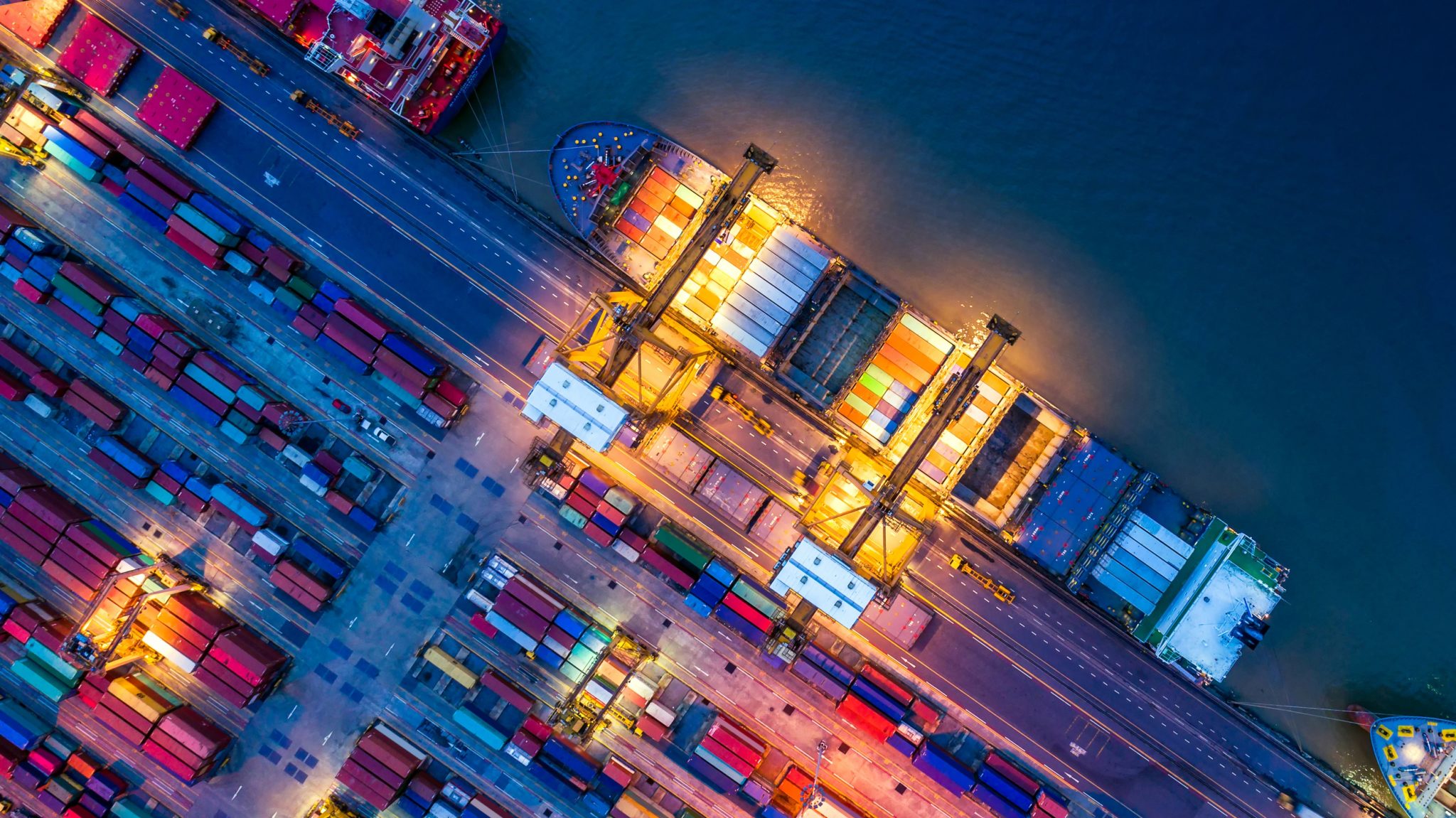The impact of financial sanctions on supply chains
Published on 15th July 2022
Sanctions may affect payment and delivery or require the unwinding of commercial arrangements – and there are a number of legal problems that businesses may face.

Following Russia's invasion of Ukraine, and the imposition of sanctions by the UK and other countries on Russia, the repercussions are being felt on (already pressured) supply chains around the world. While transactions and entities are being affected, there are measures that can be put in place to ensure compliance and ease matters.
How sanctions apply
There are different forms of financial sanctions but the type that most usually impacts businesses is the targeted asset freeze.
Generally, this prevents companies and individuals from dealing with the funds (for example, cash, cheques, credit and dividends) or economic resources (assets of any kind) of a designated person (which includes entities), or making these funds or resources available to a designated person (whether directly or indirectly). An asset freeze is very broad in what it covers.
Where funds and economic resources of a designated person or entity are held or received, they must be frozen immediately, and a notification made to the relevant regulator or enforcement body (which, in the UK, is the Office of Financial Sanctions Implementation - OFSI).
UK companies and individuals must comply with UK sanctions legislation wherever they carry out their activities and non-UK companies that undertake activities within the UK must also comply. (EU sanctions apply in a similar way. By contrast, US sanctions often go wider and apply where there is any US nexus in a transaction – most commonly in the use of the US financial system).
A business with a mix of employee nationalities and subsidiaries in different jurisdictions could find itself "caught" by a mix of sanctions regimes. Different regimes may therefore penalise different activities in different places, and overlapping regimes will need to be worked through carefully to manage sanctions risk.
It is very important to note that these restrictions also apply in relation to entities owned and controlled by designated persons (broadly speaking an entity is deemed to be controlled by a designated person if the designated person owns more than 50% of a company's shares, albeit there are other ways control can be established). However, they don't automatically extend to employees or officers of a designated person. This has the far-reaching effect of broadening sanctions beyond the pool of Russian companies and oligarchs to, for example, non-Russian enterprises owned or controlled by them.
There are robust rules on non-circumvention.
How might this affect a supply chain?
Sanctions may affect payment and delivery at various points throughout a supply chain and require the unwinding of transactions or commercial arrangements currently under way or planned.
Specific issues will include the following:
It will not be possible to send or receive supplies to/from, or make or receive payments to/from Russian entities or those that own them if they have been designated. This may not just disrupt transactions with counterparties – the knock-on effect from a failed transaction lower down or higher up a supply chain may disrupt the entire chain.
Even if a Russian counterparty is not a designated person, the transaction may be impacted because payment cannot be made to or from the counterparty's Russian bank if that bank has been designated. A number of major Russian banks are now sanctioned by the UK government and customers' funds deposited with them are likely to be the banks' funds or economic resources. It may be possible to find a solution, if the counterparties themselves are not designated.
Even if the Russian counterparty is not designated, businesses should also consider where goods or services are coming from or going to, who is shipping the goods and whether they are being shipped on a sanctioned vessel.
The cost of raw materials which were usually sourced from Russia will rise, with alterative suppliers raising their prices. Rising energy costs (with the UK and other western countries phasing out Russian oil and gas imports) are also likely to have a widespread impact on all types of businesses and sectors.
There may be a rise in "greenwashing" claims against companies in a supply chain as a knock-on effect of the sanctions. For example, Russia is a big producer of two metals used to remove toxic emissions from vehicle exhaust fumes, so an inability to source these metals could have an impact on green claims made by the car industry.
Potential legal problems
Companies caught up in the disruption will need to consider a number of legal issues, such as whether non-payment could amount to breach of contract and whether or not a sanctioned person or entity can bring proceedings.
Breach of contract
Will you be in breach of contract if you do not pay for goods already received from a Russian supplier or a supplier who has sourced those goods from Russia?
The position will partly depend on the applicable law. If English law applies and performance of a contract would breach UK sanctions law, the contract is unenforceable.
However, in the absence of an express provision in the contract, breach of foreign sanctions laws (for example, payments that breach US sanctions law) may not necessarily allow a party to stop performing its obligations, unless that obligation must be performed in a country where the act is illegal.
The express contract terms (such as on force majeure) may also be relevant.
Particular issues can arise in long cross-border supply chains where different parts of the chain are performed in different jurisdictions, subject to different sanctions, and where different laws apply. Those sitting in the middle of a chain run particular risks of remaining liable to customers if their own suppliers are able to escape their obligations due to sanctions.
This is a complicated area, and legal advice should be sought on the specific facts of each case.
Those parties with exposure in Russia itself face particular risks of adverse findings from Russian courts, which put no weight on excuses for non-performance based on Western sanctions.
Can a sanctioned person/entity sue in England?
Where the English court has jurisdiction, there is no prohibition on a sanctioned person bringing proceedings in England.
However, if judgment is obtained by the sanctioned person, it would be a breach of sanctions to make financial resources available to the sanctioned person – including payments in respect of any damages, or even payments on account of costs.
This may prove to be a disincentive to the sanctioned person to start proceedings. In the current climate, there may also be difficulties in obtaining legal representation, although there is no ban on law firms acting for sanctioned persons/entities (provided they obtain a licence to do so).
How can you protect yourself?
The previous requirement for knowledge, or a reasonable cause to suspect, that a transaction to which a business was a party was in breach of sanctions has been disapplied by new legislation from 15 June 2022 – a breach of the financial sanctions regime in the UK is now a strict liability offence.
However, OFSI will take into account a recipients' state of mind (and a host of other relevant contextual circumstances) in deciding whether or not to impose a financial penalty as a result of the breach. For more details on this, please see our earlier Insight.
The implementation of an appropriate due diligence process for accepting new business and managing existing relationships, particularly when it comes to establishing the ownership and control structures of counterparties to check for sanctioned entities, is an important step. Typically this involves the use of compliance software that incorporates automated searches.
Each business and sector has a different risk profile and the approach to sanctions compliance will vary accordingly. But it important that you identify people and entities involved through all "layers" of a transaction. Businesses need to understand their global supply chains and ask suppliers (and possibly also customers and clients) for confirmation of compliance with sanctions law. The impact of sanctions on supply chain resilience should also be assessed, so far as this is possible.
Contractual terms (such as an express sanctions clause or a force majeure, termination or material adverse change clause) are another key feature to ensure protection with counterparties. Where problems are taking place further down or up the chain, appropriate warranties or indemnities can protect your position too.





